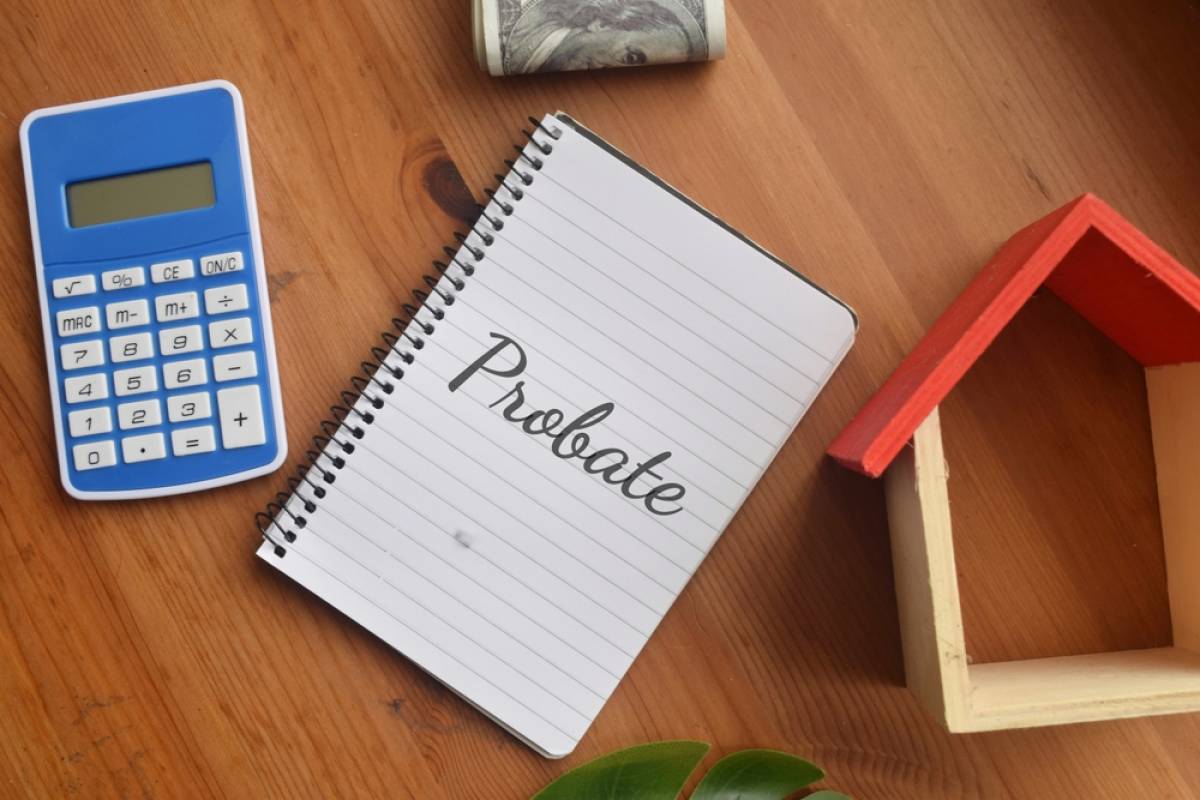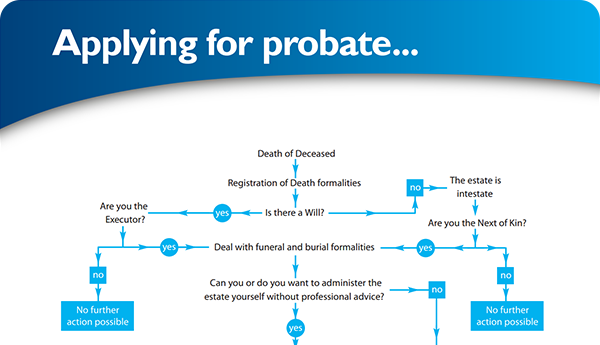When Do You Need Probate & When Is It Required?

When do you need to apply for probate and when do you not
Probate can be a confusing and complicated process that can be difficult to understand. Whether that is understanding what probate actually is or when you need it and what probate is used for.
Probate is the process of administering the legal right to deal with the property and estate of someone who has died and gain legal certification in order to prove you have the right to do so.
Only certain people can apply for probate and the people who can apply depend on whether there is a Will currently in place or not. Throughout this article, we will explore the factors on when you should apply for probate and when you do not need to apply for probate.
What Is Probate Used For?
Probate is the legal right to deal with someone's property, possessions or money, known as their estate, when they die. Probate is the process of proving that a Will is valid and is used to confirm who has the authority to administer the estate and assets of the person who has died whether that be their possessions, money or property.
Before the executor, who is named in the Will or the next of kin when there is no Will, can claim, sell, distribute or transfer any of the assets they may have to apply for a grant of probate. A grant of probate is a legal document that is needed in order to grant allowance to the deceased person's bank accounts as well as to legally sell assets and settle the debts of someone who has died.
Probate is used to give a named person authority to deal with the estate of the person who has died. When probate has been granted, the executor (the person in charge of distributing the deceased person's assets) will be able to assign this. If there was a Will, this sets out the precedent of which person or people will receive everything.
Why is a Grant of Probate needed?
A grant of probate is needed due to the fact that legal authority needs to be given to the executors and to provide reassurance and protection for anyone that is holding money for the deceased or needs to purchase assets from the executor.
If the person who has died has left a valid Will, it will name an executor and it is their responsibility to apply for probate. However, if there is no Will then inheritance rules called the Rules of Intestacy will determine whose responsibility it is to get probate.
The Rules of Intestacy lay out the rules for intestate succession in England and Wales:
- If the person who died is married and has no children or grandchildren, the surviving spouse or civil partner inherits the whole estate.
- If the person who died is married and has children, the first £270,000 is inherited by their spouse or civil partner, plus half of anything over that value. The rest is then shared equally between the children of the person who died. The spouse or civil partner also inherits all the personal possessions and is entitled to receive interest from the date of death.
- A husband, wife or civil partner must have survived the deceased by 28 days if they are to be classified as a beneficiary;
- Under the rules of intestacy, a partner who wasn’t married or in a civil partnership with the deceased at the time of death has no automatic right to inherit;
- Legally adopted sons and daughters are classified as the deceased’s children; however, stepchildren cannot inherit under the intestacy rules;
- A half-blood sibling is a brother or sister who shares one parent with the deceased;
- A half-blood aunt or uncle is the child of one of the deceased’s grandparents.
When do you need to apply for probate?
If you are dealing with anything other than a very small estate, you will need to apply for probate. As mentioned above this is even more likely if the person who has died was single or if their spouse or civil partner has died before them.
You need to apply for probate under the following circumstances:
- In order to sell property on behalf of the estate.
- Any banks or organisations the person who died held accounts with have told you they will need to see the Grant of Probate in order to release funds.
You may not need probate if the following applies:
- The value of the estate is under £5,000.
Only certain people can apply for probate and there are certain parameters that you need to meet in order to apply for probate. These parameters depend on whether there is a will or not. If there is a Will in place, then executors named in it can apply. If there is no Will, the closest living relative can apply for probate.
When Is Probate Not Necessary?
There are certain circumstances which deem that a probate application will not be necessary. In circumstances where all property and bank accounts are held jointly, the joint tenant or joint owner will automatically be granted ownership.
Probate is not necessary under the following circumstances:
- The estate only consists of money and personal belongings.
- The estate only consists of a small amount of money under £5,000 and any relevant banks or building societies said they will release funds without the need of a Grant of Probate.
- All property and bank accounts of the person who has died were held jointly with someone who is still living (spouse or civil partner).
Conclusion
Overall you should now have a clear understanding of when you need probate and what the probate process consists of and why it is necessary. As mentioned, probate is the process of administering the legal right to deal with the property and estate of someone who has died and gain legal certification in order to prove you have the right to do so.
This is an important process that is needed if you need to sell property on behalf of the estate or any banks or organisations the person who died held accounts with have told you they will need to see the Grant of Probate in order to release funds.
Here at The Probate Bureau, we know probate can be an onerous task. Therefore, we provide a comprehensive fixed-fee probate service that will provide a clear explanation of the entire process including the legalities, forms, tax implications and much more. We know what you are facing and want to help so please give our free helpline a call today and speak to our friendly team.
Share This Post
Recent posts
- When Do You Need Probate & When Is It Required? By The Probate Bureau , 26/07/2023
- Losing a Loved One at Christmas By Probate Bureau , 16/12/2020
- Probate - Your Questions Answered By Probate Bureau , 01/09/2020
2015 Archive
2016 Archive
2018 Archive
2019 Archive
2020 Archive
0 Archive
- December 1 posts
2023 Archive
- July 8 posts
Blog Categories
Find your way through the probate maze
Click here to follow our step-by–step probate process guide
×



